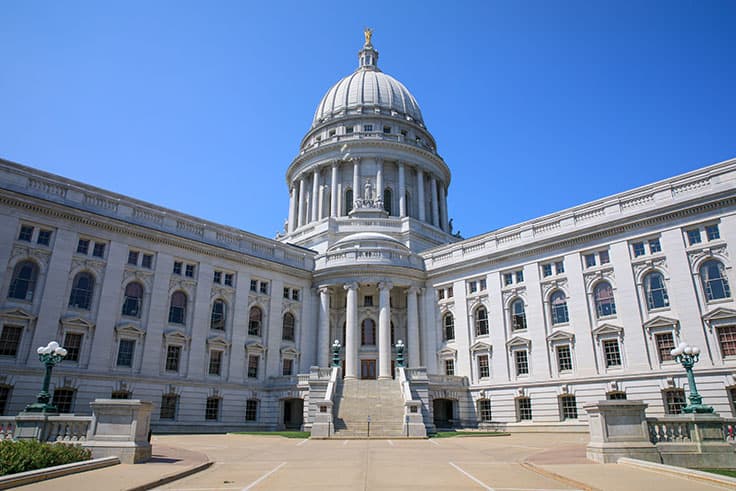
UbjsP | Adobe Stock
Wisconsin Gov. Tony Evers will propose regulating and taxing adult-use cannabis in his 2021-23 biennial budget, he announced in a statement Feb. 7.
Legalizing cannabis is expected to generate more than $165 million annually in the state, beginning in the second year of the biennium, according to the statement. Under the governor’s proposal, that money would increase revenue, create jobs and reduce costs associated with the state’s criminal justice system.
The proposal also includes legalizing medical cannabis, which would provide a pathway for those suffering from chronic or debilitating pain and illness to utilize the medicine they require, the statement said.
“Legalizing and taxing marijuana in Wisconsin—just like we do already with alcohol—ensures a controlled market and safe product are available for both recreational and medicinal users and can open the door for countless opportunities for us to reinvest in our communities and create a more equitable state,” Evers said. “Frankly, red and blue states across the country have moved forward with legalization and there is no reason Wisconsin should be left behind when we know it’s supported by a majority of Wisconsinites.”
In 2019, a Marquette University Law Poll found that 59% of Wisconsin voters supported adult-use legalization and 83% supported legalizing medical cannabis with a doctor’s prescription.
Under the governor’s new proposal, Wisconsin would join 15 other states, including neighboring Michigan and Illinois, in legalizing adult-use cannabis. But when Evers proposed decriminalizing adult-use cannabis and legalizing medical cannabis two years ago, it was rejected by the state’s Republican-controlled legislature. The democratic executive faces the same challenge with his most recent proposal.
According to Evers’ statement, his new proposal would set aside $80 million of revenue generated through taxing adult-use cannabis to reinvest in communities across the state through a new Community Reinvestment Fund. Starting in the second year of the biennium, that money would fund $30 million in equity grants through the Department of Health Services, the Department of Administration, and the Department of Children and Families; $5 million to fund grants to underserved communities through the Wisconsin Economic Development Corporation; and provide more than $34 million to support sparsity aid, which goes to small, rural school districts, the statement said.
The remaining revenue would be deposited into the state’s general fund.
